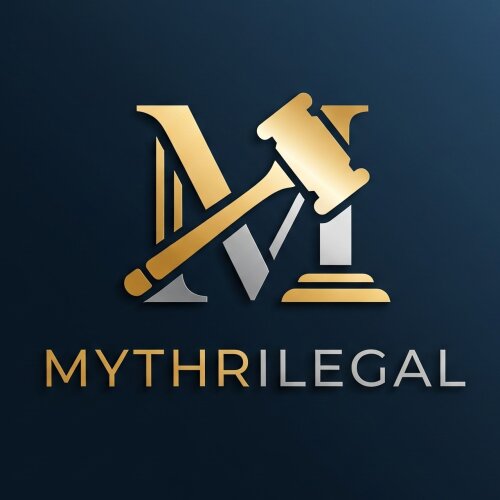Best Arrests & Searches Lawyers in Hyderabad
Share your needs with us, get contacted by law firms.
Free. Takes 2 min.
List of the best lawyers in Hyderabad, India
About Arrests & Searches Law in Hyderabad, India
The Indian Penal Code applies uniformly throughout India, including Hyderabad. Laws pertaining to arrests and searches are largely governed by the Code of Criminal Procedure, 1973 (CrPC). In general, the police have the authority to arrest an individual without a warrant for certain crimes, while for other offenses a warrant is necessary. Likewise, police can search a person or property under certain conditions without a warrant, while in other situations a search warrant from a Magistrate is required.
Why You May Need a Lawyer
Legal help is advisable if you or your property has been subjected to a search or if you've been arrested. A lawyer can provide guidance on whether the procedures followed by the police adhered to the law, and whether any of your rights were violated. A lawyer can be particularly helpful while dealing with arrest warrants, instances of police custody, or if there have been instances of illegal confiscation of property during the search. Moreover, legal representation is crucial during eventual trial proceedings.
Local Laws Overview
The CrPC sets out the law for arrests and searches. Law enforcers are bound by certain responsibilities. For instance, a woman cannot be arrested without the presence of a female officer. Searches should be conducted in a decent and orderly manner, and an arrestee has a right to know the grounds of arrest. Infringement of these rights could constitute a legal defense.
Frequently Asked Questions
1. Can the police arrest without a warrant?
Yes, in certain cases. Particularly for offenses carrying a punishment of more than seven years, including life imprisonment and the death penalty.
2. Can the police search my property without a warrant?
Yes, if they reasonably suspect that a crime has been committed, or that necessary evidence related to a crime can be found in your property. However, the search should be conducted in accordance with legal provisions.
3. What rights do I have when arrested?
You have the right to be informed about the grounds of your arrest, the right to bail, the right to a fair trial, and the right to consult with a lawyer of your choice.
4. Do I have the right to remain silent during the arrest?
Yes, you have the right to remain silent as anything you say can be used against you in court.
5. Can the police retain my property taken during a search?
If the property is deemed evidence to the crime, the police may retain it until the conclusion of the trial. Illegal or unlawfully acquired property can be confiscated permanently.
Additional Resources
You can also reach out to organizations such as the Human Rights Law Network, National Human Rights Commission, and legal aid services, for assistance and advice. The Indian Legal Services Authority provides free legal aid to those in need. In addition, the local Hyderabad Bar Association can also provide local lawyer recommendations.
Next Steps
If you require legal assistance regarding an arrest or a search, it's advisable to hire a lawyer who is expert in criminal law. You should collect all documentation and relevant information pertaining to the arrest or search for your lawyer’s reference. Remember to speak truthfully and fully disclose all details to your lawyer to ensure they are fully equipped to defend you.
Lawzana helps you find the best lawyers and law firms in Hyderabad through a curated and pre-screened list of qualified legal professionals. Our platform offers rankings and detailed profiles of attorneys and law firms, allowing you to compare based on practice areas, including Arrests & Searches, experience, and client feedback.
Each profile includes a description of the firm's areas of practice, client reviews, team members and partners, year of establishment, spoken languages, office locations, contact information, social media presence, and any published articles or resources. Most firms on our platform speak English and are experienced in both local and international legal matters.
Get a quote from top-rated law firms in Hyderabad, India — quickly, securely, and without unnecessary hassle.
Disclaimer:
The information provided on this page is for general informational purposes only and does not constitute legal advice. While we strive to ensure the accuracy and relevance of the content, legal information may change over time, and interpretations of the law can vary. You should always consult with a qualified legal professional for advice specific to your situation.
We disclaim all liability for actions taken or not taken based on the content of this page. If you believe any information is incorrect or outdated, please contact us, and we will review and update it where appropriate.
















